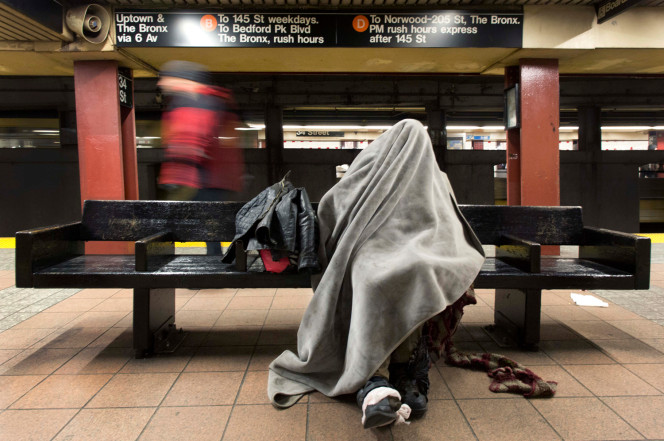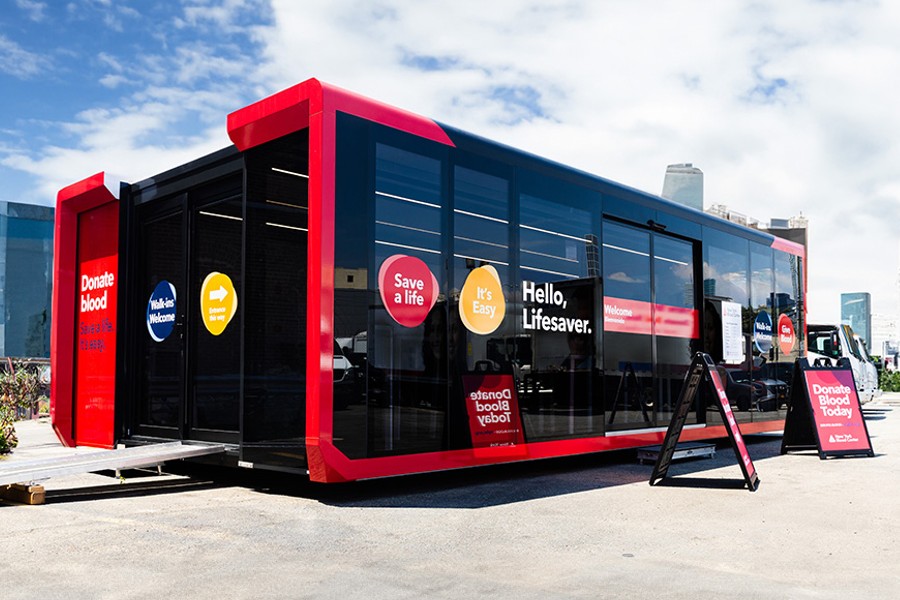
New York City Mayor Eric Adams, veteran civil rights advocate and former executive director of the New York Civil Liberties Union Norman Siegel.
Community Healthcare Network president and Coalition for the Homeless founder Robert Hayes today announced the launch of the Street Homeless Advocacy Project (SHAP), a volunteer outreach initiative to provide direct support to those experiencing homelessness. Led by Norman Siegel and Robert Hayes in conjunction with the Interfaith Assembly on Homelessness and Housing, The New York Legal Assistance Group, and the Doe Fund, the new initiative will help train New Yorkers to become volunteer advocates for those experiencing homelessness.
“The Street Homeless Advocacy Project is another step in the right direction when it comes to helping our brothers and sisters experiencing homelessness,” said Mayor Adams. “Since we started this work, we’ve made great strides, and I know we can do better. It won’t be easy, but we can no longer just walk by and pretend this is someone else’s problem. We have a moral duty to try to break this cycle of neglect and despair. With New Yorkers helping New Yorkers, I know we can build trust with homeless New Yorkers and provide them with the resources they need to come off of the streets or out of the subways and find shelter.”
“To reach people and to build trust, we need sustained engagement efforts from relatable people to connect with fellow New Yorkers experiencing homelessness,” said Deputy Mayor for Health and Human Services Anne Williams-Isom. “This program adds that element of support to the city’s efforts to help every New Yorker secure a permanent home. Thank you to the mayor for his commitment to this issue, to Norman Siegel for his leadership, and to every volunteer that is and will step up to join this effort.
“No New Yorker should have to live on the streets,” said Norman Siegel, former executive director, New York Civil Liberties Union. “The Street Homeless Advocacy Project will recruit and train volunteer advocates to reach out to people living on the streets to assist them in obtaining alternatives — including housing, safe-haven, and stabilization beds, mental health, addiction, and job trading placements — to leave the streets voluntarily. I am confident we can make a difference.”
“The mayor and his team are committed to a person-centered approach to homelessness,” said Marc Greenberg, executive director and president, Interfaith Assembly on Homelessness and Housing. “Our project is designed to work in partnership with current outreach efforts and hear directly from those impacted by the city’s policies — and support the city’s efforts to fulfill its commitment to offer a more humane response to those who have in the past found our shelters frightening and demeaning.”
“There is no dignity in living on the streets — and here at the Department of Social Services, we are committed to providing high-quality services to our unsheltered brothers and sisters so they can have a safe place to sleep and get the support they deserve,” said New York City Department of Social Services Commissioner Gary P. Jenkins. “Our low-barrier shelters — which just received a historic 171 million dollar investment — are specifically tailored to meet the unique needs of the unsheltered community. With wraparound services, medical and mental health support, and case workers on hand, our low-barrier shelters are ready to serve our city’s most vulnerable. We are thrilled to work alongside the Street Homeless Advocacy Project to help countless New Yorkers get back on their feet as part of this new initiative.”
SHAP will train volunteers to engage and build trust with those experiencing homelessness, and offer services ranging from independent housing options, safe haven beds, as well as mental health and substance use programs.
Diverse teams of volunteers (made up of individuals with direct experience of homelessness, social workers, clergy and faith leaders, and community leaders) will be assigned to specific areas, in coordination with existing street homeless outreach programs, where they will engage with and offer services to individuals experiencing unsheltered homelessness.
Volunteer advocates will go through a comprehensive application and vetting process before they start. When teams go out, they will be equipped with specific and direct links to the array of residential alternatives to the streets available to homeless individuals, as well as other support services like soup kitchens and medical services.
In addition to the Street Homeless Advocacy Project, any New Yorker who sees someone in need of assistance can call 311 or file a report through the 311 app.
The launch of the SHAP follows Mayor Adams’ historic, $171 million investment in resources for individuals experiencing street homelessness. It also comes after a record of more than 1,300 New Yorkers accepted shelter in the first three months of Mayor Adams’ Subway Safety Plan (between February 21 and May 20) — representing a five-fold increase compared to the number of individuals who accepted shelter during the first week of the plan.
Become a Harlem Insider!
By submitting this form, you are consenting to receive marketing emails from: Harlem World Magazine, 2521 1/2 west 42nd street, Los Angeles, CA, 90008, https://www.harlemworldmagazine.com. You can revoke your consent to receive emails at any time by using the SafeUnsubscribe® link, found at the bottom of every email. Emails are serviced by Constant Contact








